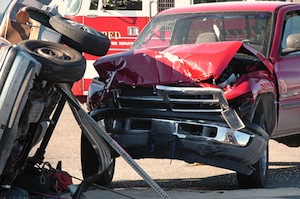
In the finale of Seinfeld, the four main characters are arrested for violating a law variously entitled "The Good Samaritan Law.” At the time the series was filmed, the law was supposedly a new law. However, a large majority of states now have "Good Samaritan" laws on the books. Obviously, the situation in the series was make-believe, but what exactly does the law say in Texas about Good Samaritans and rendering aid to an injured person? If you help someone who is injured, and the injured person later claims you caused the person further damage, can you be held accountable? What is your liability in regard to rendering aid for someone either hurt or sick in an emergency situation?Tex CP Code Ann. Section 74.151 Liability for Emergency Care states as follows: (a)A person who in good faith administers emergency care is not liable in civil damages for an act performed during the emergency unless the act is willfully or wantonly negligent, including a person who: (1) administers emergency care using an automated external defibrillator; or (2) administers emergency care as a volunteer who is a first responder as the term is defined under Section 421.095, Government Code (a public safety employee or volunteer). (b) This section does not apply to care administered: (1) for or in expectation of remuneration, provided that being legally entitled to receive remuneration for emergency care rendered shall not determine whether or not the care was administered for or in anticipation of remuneration; or (2) by a person who was at the scene of the emergency because he or a person he represents as an agent was soliciting business or seeking to perform a service for remuneration. (c) (d) Deleted by Acts 2003, 78th Leg., ch.204, Sec. 10.01 (e) This section does not apply to a person whose negligent act or omission was a producing cause of the emergency for which care is being administered. If you’re still awake, what all this legal speak means is that, generally, you cannot be held liable for civil damages if you help someone who is injured as long as you act in good faith. The exceptions are if you are getting paid to perform the services, or by a person who was at the scene because he (or a person he represents) was soliciting business. Finally, of course, you are not exempt from civil damages if it was your negligent act or omission that caused the injury in the first place. For example, if you caused the car wreck which resulted in injuries to the person to whom you are rendering emergency care, you can still be liable for civil damages.









